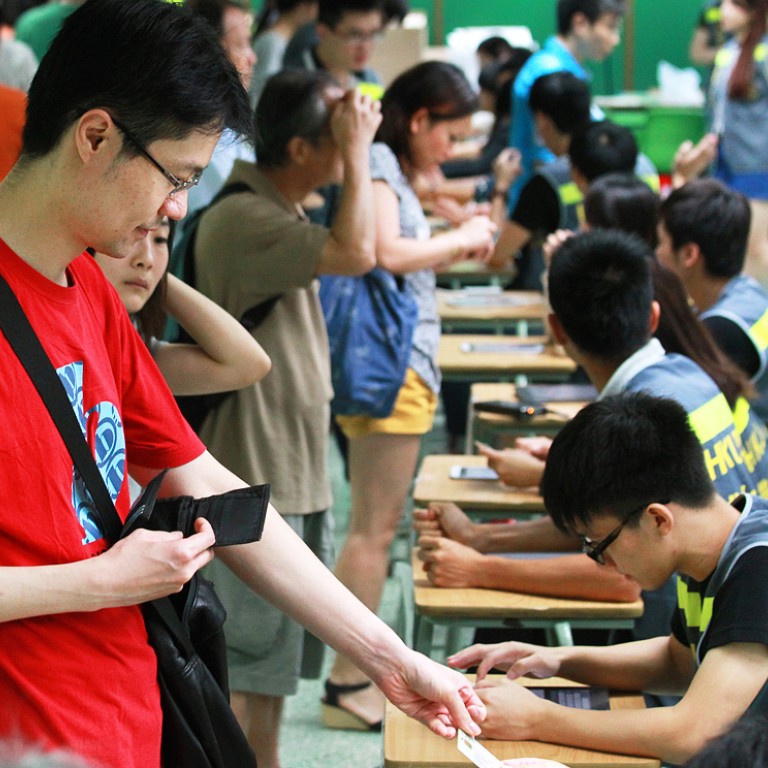
Vote 2017: Young voters are most determined in terms of public nomination
Younger voters in the Occupy Central referendum are more determined than their older counterparts that the public should have the right to nominate chief executive candidates.
Younger voters in the Occupy Central referendum are more determined than their older counterparts that the public should have the right to nominate chief executive candidates.

This has emerged from analysis of the 's mini-poll on Sunday of 207 people who voted at polling stations in the unofficial plebiscite.
Some 96 per cent of those aged 18 to 29 said the government must adopt public nomination for the 2017 universal-suffrage election, compared with 85 per cent of those aged above 40.
Those over 40 were twice as likely as the younger voters to reject outright the Occupy civil disobedience movement.
Some 61 per cent of the younger group - compared with 37 per cent of older voters - said they were still considering whether to join Occupy's plan to paralyse Central if the government's electoral reforms failed to meet international standards.
In regards to the three proposals put forward in the unofficial referendum, 68 per cent of voters under 40 supported the joint submission by Scholarism and the Federation of Students, while almost half of the over-40 group opted for the "three-track" idea of the Alliance for True Democracy.
The alliance, with its call for public and party nominations, embraces the official nominating committee but does not specify its composition. The students suggest that it should be made up of directly-elected lawmakers.
The People Power plan, which calls for the committee to include elected district councillors, received negligible backing.
Dr Brian Fong Chi-hang, of SynergyNet, a public-policy think tank, said the indecision over joining Occupy Central showed many people had been prompted to take part in the referendum by the recent hardening of Beijing's stance rather than by strong support for the campaign. "It's normal for youngsters to be more passionate," Fong said. "It illustrates a generational political phenomenon."

